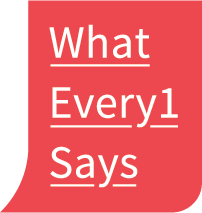(all)
Global Humanities | History of Humanities | Liberal Arts | Humanities and Higher Education | Humanities as Research Activity | Humanities Teaching & Curricula | Humanities and the Sciences | Medical Humanities | Public Humanities | Humanities Advocacy | Humanities and Social Groups | Value of Humanities | Humanities and Economic Value | Humanities Funding | Humanities Statistics | Humanities Surveys | "Crisis" of the Humanities
Humanities Organizations: Humanities Councils (U.S.) | Government Agencies | Foundations | Scholarly Associations
Humanities in: Africa | Asia (East) | Asia (South) | Australasia | Europe | Latin America | Middle East | North America: Canada - Mexico - United States | Scandinavia | United Kingdom
(all)
Lists of News Sources | Databases with News Archives | History of Journalism | Journalism Studies | Journalism Statistics | Journalism Organizations | Student Journalism | Data Journalism | Media Frames (analyzing & changing media narratives using "frame theory") | Media Bias | Fake News | Journalism and Minorities | Journalism and Women | Press Freedom | News & Social Media
(all)
Corpus Representativeness
Comparison paradigms for idea of a corpus: Archives as Paradigm | Canons as Paradigm | Editions as Paradigm | Corpus Linguistics as Paradigm
(all)
Artificial Intelligence | Big Data | Data Mining | Data Notebooks (Jupyter Notebooks) | Data Visualization (see also Topic Model Visualizations) | Hierarchical Clustering | Interpretability & Explainability (see also Topic Model Interpretation) | Mapping | Natural Language Processing | Network Analysis | Open Science | Reporting & Documentation Methods | Reproducibility | Sentiment Analysis | Social Media Analysis | Statistical Methods | Text Analysis (see also Topic Modeling) | Text Classification | Wikification | Word Embedding & Vector Semantics
Topic Modeling (all)
Selected DH research and resources bearing on, or utilized by, the WE1S project.
(all)
Distant Reading | Cultural Analytics | | Sociocultural Approaches | Topic Modeling in DH | Non-consumptive Use
Searchable version of bibliography on Zotero site
For WE1S developers: Biblio style guide | Biblio collection form (suggest additions) | WE1S Bibliography Ontology Outline
Publications related to WE1S by project participants
2133649
WE1S publications
1
chicago-fullnote-bibliography
50
date
desc
year
1
1
1
5094
https://we1s.ucsb.edu/wp-content/plugins/zotpress/
%7B%22status%22%3A%22success%22%2C%22updateneeded%22%3Afalse%2C%22instance%22%3Afalse%2C%22meta%22%3A%7B%22request_last%22%3A0%2C%22request_next%22%3A0%2C%22used_cache%22%3Atrue%7D%2C%22data%22%3A%5B%7B%22key%22%3A%22H8QBIUBI%22%2C%22library%22%3A%7B%22id%22%3A2133649%7D%2C%22meta%22%3A%7B%22lastModifiedByUser%22%3A%7B%22id%22%3A4770172%2C%22username%22%3A%22lcthomas%22%2C%22name%22%3A%22Lindsay%20Thomas%22%2C%22links%22%3A%7B%22alternate%22%3A%7B%22href%22%3A%22https%3A%5C%2F%5C%2Fwww.zotero.org%5C%2Flcthomas%22%2C%22type%22%3A%22text%5C%2Fhtml%22%7D%7D%7D%2C%22creatorSummary%22%3A%22Thomas%20and%20Droge%22%2C%22parsedDate%22%3A%222022-05-24%22%2C%22numChildren%22%3A0%7D%2C%22bib%22%3A%22%26lt%3Bdiv%20class%3D%26quot%3Bcsl-bib-body%26quot%3B%20style%3D%26quot%3Bline-height%3A%201.35%3B%20padding-left%3A%201em%3B%20text-indent%3A-1em%3B%26quot%3B%26gt%3B%5Cn%20%20%26lt%3Bdiv%20class%3D%26quot%3Bcsl-entry%26quot%3B%26gt%3BThomas%2C%20Lindsay%2C%20and%20Abigail%20Droge.%20%26%23x201C%3BWhat%20We%20Learned%20About%20the%20Humanities%20from%20a%20Study%20of%20Thousands%20of%20Newspaper%20Articles.%26%23x201D%3B%20%26lt%3Bi%26gt%3BJournal%20of%20Cultural%20Analytics%26lt%3B%5C%2Fi%26gt%3B%2C%20May%2024%2C%202022%2C%20139%26%23x2013%3B44.%20%26lt%3Ba%20class%3D%26%23039%3Bzp-DOIURL%26%23039%3B%20href%3D%26%23039%3Bhttps%3A%5C%2F%5C%2Fdoi.org%5C%2F10.22148%5C%2F001c.35907%26%23039%3B%26gt%3Bhttps%3A%5C%2F%5C%2Fdoi.org%5C%2F10.22148%5C%2F001c.35907%26lt%3B%5C%2Fa%26gt%3B.%20%26lt%3Ba%20title%3D%26%23039%3BCite%20in%20RIS%20Format%26%23039%3B%20class%3D%26%23039%3Bzp-CiteRIS%26%23039%3B%20data-zp-cite%3D%26%23039%3Bapi_user_id%3D2133649%26amp%3Bitem_key%3DH8QBIUBI%26%23039%3B%20href%3D%26%23039%3Bjavascript%3Avoid%280%29%3B%26%23039%3B%26gt%3BCite%26lt%3B%5C%2Fa%26gt%3B%20%26lt%3B%5C%2Fdiv%26gt%3B%5Cn%26lt%3B%5C%2Fdiv%26gt%3B%22%2C%22data%22%3A%7B%22itemType%22%3A%22journalArticle%22%2C%22title%22%3A%22What%20We%20Learned%20About%20the%20Humanities%20from%20a%20Study%20of%20Thousands%20of%20Newspaper%20Articles%22%2C%22creators%22%3A%5B%7B%22creatorType%22%3A%22author%22%2C%22firstName%22%3A%22Lindsay%22%2C%22lastName%22%3A%22Thomas%22%7D%2C%7B%22creatorType%22%3A%22author%22%2C%22firstName%22%3A%22Abigail%22%2C%22lastName%22%3A%22Droge%22%7D%5D%2C%22abstractNote%22%3A%22How%20might%20a%20computational%20analysis%20of%20the%20humanities%20in%20public%20discourse%20inform%20future%20efforts%20in%20humanities%20education%20and%20research%3F%20This%20question%20motivates%20this%20short%20essay%3B%20here%2C%20we%20reflect%20on%20key%20arguments%20from%20our%20longer%20article%20%5Cu201cThe%20Humanities%20in%20Public%3A%20A%20Computational%20Analysis%20of%20US%20National%20and%20Campus%20Newspapers%5Cu201d%20with%20an%20eye%20toward%20imagining%20possible%20use%20cases%20and%20applications%20for%20our%20findings.%20After%20summarizing%20our%20main%20claims%2C%20we%20suggest%20ways%20of%20reframing%20or%20revaluing%20advocacy%20for%20the%20humanities%20based%20on%20this%20research.%20These%20include%20delineating%20concrete%20examples%20of%20the%20relationship%20between%20humanistic%20knowledge%20and%20the%20public%20interest%2C%20shifting%20institutional%20and%20disciplinary%20priorities%20toward%20forms%20of%20labor%20that%20engage%20a%20wider%20variety%20of%20publics%2C%20and%20understanding%20the%20connections%20between%2C%20rather%20than%20focusing%20on%20competition%20among%2C%20the%20humanities%20and%20the%20sciences.%22%2C%22date%22%3A%222022%5C%2F5%5C%2F24%22%2C%22section%22%3A%22%22%2C%22partNumber%22%3A%22%22%2C%22partTitle%22%3A%22%22%2C%22DOI%22%3A%2210.22148%5C%2F001c.35907%22%2C%22citationKey%22%3A%22thomas2022a%22%2C%22url%22%3A%22https%3A%5C%2F%5C%2Fculturalanalytics.org%5C%2Farticle%5C%2F35907-what-we-learned-about-the-humanities-from-a-study-of-thousands-of-newspaper-articles%22%2C%22PMID%22%3A%22%22%2C%22PMCID%22%3A%22%22%2C%22ISSN%22%3A%22%22%2C%22language%22%3A%22en%22%2C%22collections%22%3A%5B%5D%2C%22dateModified%22%3A%222026-02-16T21%3A25%3A40Z%22%2C%22tags%22%3A%5B%7B%22tag%22%3A%22Humanities%22%7D%2C%7B%22tag%22%3A%22Humanities%20advocacy%22%7D%2C%7B%22tag%22%3A%22Humanities%20and%20higher%20education%22%7D%2C%7B%22tag%22%3A%22Humanities%20and%20the%20sciences%22%7D%2C%7B%22tag%22%3A%22Humanities%20in%20United%20States%22%7D%2C%7B%22tag%22%3A%22WE1S%20publications%22%7D%5D%7D%7D%2C%7B%22key%22%3A%22Q99VD6CB%22%2C%22library%22%3A%7B%22id%22%3A2133649%7D%2C%22meta%22%3A%7B%22lastModifiedByUser%22%3A%7B%22id%22%3A4770172%2C%22username%22%3A%22lcthomas%22%2C%22name%22%3A%22Lindsay%20Thomas%22%2C%22links%22%3A%7B%22alternate%22%3A%7B%22href%22%3A%22https%3A%5C%2F%5C%2Fwww.zotero.org%5C%2Flcthomas%22%2C%22type%22%3A%22text%5C%2Fhtml%22%7D%7D%7D%2C%22creatorSummary%22%3A%22Liu%22%2C%22parsedDate%22%3A%222022%22%2C%22numChildren%22%3A0%7D%2C%22bib%22%3A%22%26lt%3Bdiv%20class%3D%26quot%3Bcsl-bib-body%26quot%3B%20style%3D%26quot%3Bline-height%3A%201.35%3B%20padding-left%3A%201em%3B%20text-indent%3A-1em%3B%26quot%3B%26gt%3B%5Cn%20%20%26lt%3Bdiv%20class%3D%26quot%3Bcsl-entry%26quot%3B%26gt%3BLiu%2C%20Alan.%20%26%23x201C%3BWhat%20Everyone%20Says%20about%20the%20Humanities.%26%23x201D%3B%20%26lt%3Bi%26gt%3BMLA%20Newsletter%26lt%3B%5C%2Fi%26gt%3B%2054%2C%20no.%201%20%282022%29%3A%201%2C%204%26%23x2013%3B5.%20%26lt%3Ba%20class%3D%26%23039%3Bzp-ItemURL%26%23039%3B%20href%3D%26%23039%3Bhttps%3A%5C%2F%5C%2Fwww.mla.org%5C%2Fcontent%5C%2Fdownload%5C%2F183503%5C%2F3006735%5C%2FNL_54-1_web.pdf%26%23039%3B%26gt%3Bhttps%3A%5C%2F%5C%2Fwww.mla.org%5C%2Fcontent%5C%2Fdownload%5C%2F183503%5C%2F3006735%5C%2FNL_54-1_web.pdf%26lt%3B%5C%2Fa%26gt%3B.%20%26lt%3Ba%20title%3D%26%23039%3BCite%20in%20RIS%20Format%26%23039%3B%20class%3D%26%23039%3Bzp-CiteRIS%26%23039%3B%20data-zp-cite%3D%26%23039%3Bapi_user_id%3D2133649%26amp%3Bitem_key%3DQ99VD6CB%26%23039%3B%20href%3D%26%23039%3Bjavascript%3Avoid%280%29%3B%26%23039%3B%26gt%3BCite%26lt%3B%5C%2Fa%26gt%3B%20%26lt%3B%5C%2Fdiv%26gt%3B%5Cn%26lt%3B%5C%2Fdiv%26gt%3B%22%2C%22data%22%3A%7B%22itemType%22%3A%22journalArticle%22%2C%22title%22%3A%22What%20Everyone%20Says%20about%20the%20Humanities%22%2C%22creators%22%3A%5B%7B%22creatorType%22%3A%22author%22%2C%22firstName%22%3A%22Alan%22%2C%22lastName%22%3A%22Liu%22%7D%5D%2C%22abstractNote%22%3A%22%22%2C%22date%22%3A%222022%22%2C%22section%22%3A%22%22%2C%22partNumber%22%3A%22%22%2C%22partTitle%22%3A%22%22%2C%22DOI%22%3A%22%22%2C%22citationKey%22%3A%22liu2022c%22%2C%22url%22%3A%22https%3A%5C%2F%5C%2Fwww.mla.org%5C%2Fcontent%5C%2Fdownload%5C%2F183503%5C%2F3006735%5C%2FNL_54-1_web.pdf%22%2C%22PMID%22%3A%22%22%2C%22PMCID%22%3A%22%22%2C%22ISSN%22%3A%22%22%2C%22language%22%3A%22en%22%2C%22collections%22%3A%5B%5D%2C%22dateModified%22%3A%222026-02-16T21%3A25%3A40Z%22%2C%22tags%22%3A%5B%7B%22tag%22%3A%22WE1S%20publications%22%7D%5D%7D%7D%2C%7B%22key%22%3A%22JPWWXX8N%22%2C%22library%22%3A%7B%22id%22%3A2133649%7D%2C%22meta%22%3A%7B%22lastModifiedByUser%22%3A%7B%22id%22%3A4770172%2C%22username%22%3A%22lcthomas%22%2C%22name%22%3A%22Lindsay%20Thomas%22%2C%22links%22%3A%7B%22alternate%22%3A%7B%22href%22%3A%22https%3A%5C%2F%5C%2Fwww.zotero.org%5C%2Flcthomas%22%2C%22type%22%3A%22text%5C%2Fhtml%22%7D%7D%7D%2C%22creatorSummary%22%3A%22Thomas%20and%20Droge%22%2C%22parsedDate%22%3A%222022%22%2C%22numChildren%22%3A0%7D%2C%22bib%22%3A%22%26lt%3Bdiv%20class%3D%26quot%3Bcsl-bib-body%26quot%3B%20style%3D%26quot%3Bline-height%3A%201.35%3B%20padding-left%3A%201em%3B%20text-indent%3A-1em%3B%26quot%3B%26gt%3B%5Cn%20%20%26lt%3Bdiv%20class%3D%26quot%3Bcsl-entry%26quot%3B%26gt%3BThomas%2C%20Lindsay%2C%20and%20Abigail%20Droge.%20%26%23x201C%3BThe%20Humanities%20in%20Public%3A%20A%20Computational%20Analysis%20of%20US%20National%20and%20Campus%20Newspapers.%26%23x201D%3B%20%26lt%3Bi%26gt%3BJournal%20of%20Cultural%20Analytics%26lt%3B%5C%2Fi%26gt%3B%207%2C%20no.%201%20%282022%29%3A%2036%26%23x2013%3B80.%20%26lt%3Ba%20class%3D%26%23039%3Bzp-ItemURL%26%23039%3B%20href%3D%26%23039%3Bhttps%3A%5C%2F%5C%2Fculturalanalytics.org%5C%2Farticle%5C%2F32036-the-humanities-in-public-a-computational-analysis-of-us-national-and-campus-newspapers%26%23039%3B%26gt%3Bhttps%3A%5C%2F%5C%2Fculturalanalytics.org%5C%2Farticle%5C%2F32036-the-humanities-in-public-a-computational-analysis-of-us-national-and-campus-newspapers%26lt%3B%5C%2Fa%26gt%3B.%20%26lt%3Ba%20title%3D%26%23039%3BCite%20in%20RIS%20Format%26%23039%3B%20class%3D%26%23039%3Bzp-CiteRIS%26%23039%3B%20data-zp-cite%3D%26%23039%3Bapi_user_id%3D2133649%26amp%3Bitem_key%3DJPWWXX8N%26%23039%3B%20href%3D%26%23039%3Bjavascript%3Avoid%280%29%3B%26%23039%3B%26gt%3BCite%26lt%3B%5C%2Fa%26gt%3B%20%26lt%3B%5C%2Fdiv%26gt%3B%5Cn%26lt%3B%5C%2Fdiv%26gt%3B%22%2C%22data%22%3A%7B%22itemType%22%3A%22journalArticle%22%2C%22title%22%3A%22The%20Humanities%20in%20Public%3A%20A%20Computational%20Analysis%20of%20US%20National%20and%20Campus%20Newspapers%22%2C%22creators%22%3A%5B%7B%22creatorType%22%3A%22author%22%2C%22firstName%22%3A%22Lindsay%22%2C%22lastName%22%3A%22Thomas%22%7D%2C%7B%22creatorType%22%3A%22author%22%2C%22firstName%22%3A%22Abigail%22%2C%22lastName%22%3A%22Droge%22%7D%5D%2C%22abstractNote%22%3A%22Academic%20defenses%20of%20the%20humanities%20often%20make%20two%20assumptions%3A%20first%2C%20that%20the%20overwhelming%20public%20perception%20of%20the%20humanities%20is%20one%20of%20crisis%2C%20and%20second%2C%20that%20our%20understanding%20of%20what%20the%20humanities%20means%20is%20best%20traced%20through%20a%20lineage%20of%20famous%20reference%20points%2C%20from%20Matthew%20Arnold%20to%20the%20Harvard%20Redbook.%20We%20challenge%20these%20assumptions%20by%20reconsidering%20the%20humanities%20from%20the%20perspective%20of%20a%20corpus%20of%20over%20147%2C000%20relatively%20recent%20national%20and%20campus%20newspaper%20articles.%20Building%20from%20the%20work%20of%20the%20WhatEvery1Says%20project%20%28WE1S%29%2C%20we%20employ%20computational%20methods%20to%20analyze%20how%20the%20humanities%20resonate%20in%20the%20daily%20language%20of%20communities%2C%20campuses%2C%20and%20cities%20across%20the%20US.%20We%20compare%20humanities%20discourse%20to%20science%20discourse%2C%20exploring%20the%20distinct%20ways%20that%20each%20type%20of%20discourse%20communicates%20research%2C%20situates%20itself%20institutionally%2C%20and%20discusses%20its%20value.%20Doing%20so%20shifts%20our%20understanding%20of%20both%20terms%20in%20the%20phrase%20%5Cu201cpublic%20humanities.%5Cu201d%20We%20turn%20from%20the%20sweeping%20and%20singular%20conception%20of%20%5Cu201cthe%20public%5Cu201d%20often%20invoked%20by%20calls%20for%20a%20more%20public%20humanities%20to%20the%20multiple%20overlapping%20publics%20instantiated%20through%20the%20journalistic%20discourse%20we%20examine.%20And%20%5Cu201cthe%20humanities%5Cu201d%20becomes%20not%20only%20the%20concept%20named%20by%20articles%20explicitly%20%5Cu201cabout%5Cu201d%20the%20humanities%2C%20but%20also%20the%20accreted%20meaning%20of%20wide-ranging%20mentions%20of%20the%20term%20in%20building%20names%2C%20job%20titles%2C%20and%20announcements.%20Though%20seemingly%20inconsequential%2C%20we%20argue%20that%20such%20uses%20of%20the%20term%20index%20diffuse%20and%20often%20inchoate%20connections%20between%20individuals%2C%20communities%2C%20and%20institutions%20including%2C%20but%20not%20limited%20to%2C%20colleges%20and%20universities.%20Ultimately%2C%20we%20aim%20to%20show%20that%20a%20robust%20understanding%20of%20how%20humanities%20discourse%20already%20interacts%20with%20and%20conceives%20of%20the%20publics%20it%20addresses%20should%20play%20a%20crucial%20role%20in%20informing%20ongoing%20and%20future%20public%20humanities%20efforts.%22%2C%22date%22%3A%222022%22%2C%22section%22%3A%22%22%2C%22partNumber%22%3A%22%22%2C%22partTitle%22%3A%22%22%2C%22DOI%22%3A%22%22%2C%22citationKey%22%3A%22thomas2022%22%2C%22url%22%3A%22https%3A%5C%2F%5C%2Fculturalanalytics.org%5C%2Farticle%5C%2F32036-the-humanities-in-public-a-computational-analysis-of-us-national-and-campus-newspapers%22%2C%22PMID%22%3A%22%22%2C%22PMCID%22%3A%22%22%2C%22ISSN%22%3A%22%22%2C%22language%22%3A%22en%22%2C%22collections%22%3A%5B%5D%2C%22dateModified%22%3A%222026-02-16T21%3A25%3A40Z%22%2C%22tags%22%3A%5B%7B%22tag%22%3A%22DH%20Cultural%20analytics%22%7D%2C%7B%22tag%22%3A%22DH%20Digital%20humanities%22%7D%2C%7B%22tag%22%3A%22DH%20Distant%20reading%22%7D%2C%7B%22tag%22%3A%22DH%20Sociocultural%20approaches%22%7D%2C%7B%22tag%22%3A%22Humanities%20and%20higher%20education%22%7D%2C%7B%22tag%22%3A%22Humanities%20crisis%22%7D%2C%7B%22tag%22%3A%22Humanities%20in%20United%20States%22%7D%2C%7B%22tag%22%3A%22Journalism%22%7D%2C%7B%22tag%22%3A%22Student%20journalism%22%7D%2C%7B%22tag%22%3A%22Topic%20model%20applied%22%7D%2C%7B%22tag%22%3A%22WE1S%20publications%22%7D%5D%7D%7D%2C%7B%22key%22%3A%22VL6B8LBQ%22%2C%22library%22%3A%7B%22id%22%3A2133649%7D%2C%22meta%22%3A%7B%22lastModifiedByUser%22%3A%7B%22id%22%3A4770172%2C%22username%22%3A%22lcthomas%22%2C%22name%22%3A%22Lindsay%20Thomas%22%2C%22links%22%3A%7B%22alternate%22%3A%7B%22href%22%3A%22https%3A%5C%2F%5C%2Fwww.zotero.org%5C%2Flcthomas%22%2C%22type%22%3A%22text%5C%2Fhtml%22%7D%7D%7D%2C%22creatorSummary%22%3A%22Liu%20et%20al.%22%2C%22parsedDate%22%3A%222022%22%2C%22numChildren%22%3A0%7D%2C%22bib%22%3A%22%26lt%3Bdiv%20class%3D%26quot%3Bcsl-bib-body%26quot%3B%20style%3D%26quot%3Bline-height%3A%201.35%3B%20padding-left%3A%201em%3B%20text-indent%3A-1em%3B%26quot%3B%26gt%3B%5Cn%20%20%26lt%3Bdiv%20class%3D%26quot%3Bcsl-entry%26quot%3B%26gt%3BLiu%2C%20Alan%2C%20Abigail%20Droge%2C%20Scott%20Kleinman%2C%20Lindsay%20Thomas%2C%20Dan%20C.%20Baciu%2C%20and%20Jeremy%20Douglass.%20%26%23x201C%3BWhat%20Everyone%20Says%3A%20Public%20Perceptions%20of%20the%20Humanities%20in%20the%20Media.%26%23x201D%3B%20%26lt%3Bi%26gt%3BDaedalus%26lt%3B%5C%2Fi%26gt%3B%20151%2C%20no.%203%20%282022%29%3A%2019%26%23x2013%3B39.%20%26lt%3Ba%20class%3D%26%23039%3Bzp-ItemURL%26%23039%3B%20href%3D%26%23039%3Bhttps%3A%5C%2F%5C%2Fdoi.org%5C%2F10.1162%5C%2FDAED_a_01926%26%23039%3B%26gt%3Bhttps%3A%5C%2F%5C%2Fdoi.org%5C%2F10.1162%5C%2FDAED_a_01926%26lt%3B%5C%2Fa%26gt%3B.%20%26lt%3Ba%20title%3D%26%23039%3BCite%20in%20RIS%20Format%26%23039%3B%20class%3D%26%23039%3Bzp-CiteRIS%26%23039%3B%20data-zp-cite%3D%26%23039%3Bapi_user_id%3D2133649%26amp%3Bitem_key%3DVL6B8LBQ%26%23039%3B%20href%3D%26%23039%3Bjavascript%3Avoid%280%29%3B%26%23039%3B%26gt%3BCite%26lt%3B%5C%2Fa%26gt%3B%20%26lt%3B%5C%2Fdiv%26gt%3B%5Cn%26lt%3B%5C%2Fdiv%26gt%3B%22%2C%22data%22%3A%7B%22itemType%22%3A%22journalArticle%22%2C%22title%22%3A%22What%20Everyone%20Says%3A%20Public%20Perceptions%20of%20the%20Humanities%20in%20the%20Media%22%2C%22creators%22%3A%5B%7B%22creatorType%22%3A%22author%22%2C%22firstName%22%3A%22Alan%22%2C%22lastName%22%3A%22Liu%22%7D%2C%7B%22creatorType%22%3A%22author%22%2C%22firstName%22%3A%22Abigail%22%2C%22lastName%22%3A%22Droge%22%7D%2C%7B%22creatorType%22%3A%22author%22%2C%22firstName%22%3A%22Scott%22%2C%22lastName%22%3A%22Kleinman%22%7D%2C%7B%22creatorType%22%3A%22author%22%2C%22firstName%22%3A%22Lindsay%22%2C%22lastName%22%3A%22Thomas%22%7D%2C%7B%22creatorType%22%3A%22author%22%2C%22firstName%22%3A%22Dan%20C.%22%2C%22lastName%22%3A%22Baciu%22%7D%2C%7B%22creatorType%22%3A%22author%22%2C%22firstName%22%3A%22Jeremy%22%2C%22lastName%22%3A%22Douglass%22%7D%5D%2C%22abstractNote%22%3A%22Using%20computational%20means%20to%20understand%20patterns%20in%20how%20the%20humanities%20are%20mentioned%20in%20U.S.%20journalism%2C%20the%20WhatEvery1Says%20project%20brings%20into%20focus%20challenging%20problems%20in%20the%20perception%20of%20the%20humanities.%20This%20essay%20reports%20on%20the%20project%5Cu2019s%20findings%20and%20some%20of%20the%20further%20questions%20that%20emerged%20from%20them.%20For%20example%2C%20how%20does%20the%20%5Cu201chumanities%20crisis%5Cu201d%20appear%20among%20the%20many%20crises%20of%20our%20time%3F%20Why%20do%20the%20humanities%20figure%20so%20often%20in%20connection%20with%20concrete%2C%20ordinary%20life%20yet%20also%20seem%20abstract%20in%20value%3F%20How%20can%20more%20of%20the%20substance%20of%20humanistic%20research%20be%20communicated%20as%20opposed%20to%20appearing%20as%20just%20academic%20business%3F%20And%20why%20is%20there%20so%20little%20focus%20in%20the%20media%20on%20how%20underrepresented%20populations%20are%20positioned%20in%20relation%20to%20the%20humanities%20by%20comparison%20to%20science%20and%20social%2C%20political%2C%20or%20economic%20issues%3F%20The%20essay%20concludes%20by%20recommending%20that%20the%20humanities%20reframe%20their%20crisis%20as%20part%20of%20larger%20human%20crises%20requiring%20multidisciplinary%20%5Cu201cgrand%20challenge%5Cu201d%20approaches.%22%2C%22date%22%3A%222022%22%2C%22section%22%3A%22%22%2C%22partNumber%22%3A%22%22%2C%22partTitle%22%3A%22%22%2C%22DOI%22%3A%2210.1162%5C%2FDAED_a_01926%22%2C%22citationKey%22%3A%22liu2022%22%2C%22url%22%3A%22https%3A%5C%2F%5C%2Fdoi.org%5C%2F10.1162%5C%2FDAED_a_01926%22%2C%22PMID%22%3A%22%22%2C%22PMCID%22%3A%22%22%2C%22ISSN%22%3A%22%22%2C%22language%22%3A%22en%22%2C%22collections%22%3A%5B%5D%2C%22dateModified%22%3A%222026-02-16T21%3A25%3A40Z%22%2C%22tags%22%3A%5B%7B%22tag%22%3A%22Humanities%22%7D%2C%7B%22tag%22%3A%22Humanities%20advocacy%22%7D%2C%7B%22tag%22%3A%22Humanities%20and%20higher%20education%22%7D%2C%7B%22tag%22%3A%22Humanities%20crisis%22%7D%2C%7B%22tag%22%3A%22Humanities%20in%20United%20States%22%7D%2C%7B%22tag%22%3A%22Public%20humanities%22%7D%2C%7B%22tag%22%3A%22WE1S%20publications%22%7D%5D%7D%7D%2C%7B%22key%22%3A%22F23HEP4D%22%2C%22library%22%3A%7B%22id%22%3A2133649%7D%2C%22meta%22%3A%7B%22lastModifiedByUser%22%3A%7B%22id%22%3A4770172%2C%22username%22%3A%22lcthomas%22%2C%22name%22%3A%22Lindsay%20Thomas%22%2C%22links%22%3A%7B%22alternate%22%3A%7B%22href%22%3A%22https%3A%5C%2F%5C%2Fwww.zotero.org%5C%2Flcthomas%22%2C%22type%22%3A%22text%5C%2Fhtml%22%7D%7D%7D%2C%22creatorSummary%22%3A%22Baciu%22%2C%22parsedDate%22%3A%222020%22%2C%22numChildren%22%3A0%7D%2C%22bib%22%3A%22%26lt%3Bdiv%20class%3D%26quot%3Bcsl-bib-body%26quot%3B%20style%3D%26quot%3Bline-height%3A%201.35%3B%20padding-left%3A%201em%3B%20text-indent%3A-1em%3B%26quot%3B%26gt%3B%5Cn%20%20%26lt%3Bdiv%20class%3D%26quot%3Bcsl-entry%26quot%3B%26gt%3BBaciu%2C%20Dan%20C.%20%26%23x201C%3BCultural%20Life%3A%20Theory%20and%20Empirical%20Testing.%26%23x201D%3B%20%26lt%3Bi%26gt%3BBiosystems%26lt%3B%5C%2Fi%26gt%3B%2C%20no.%20Pre-proof%20%282020%29.%20%26lt%3Ba%20class%3D%26%23039%3Bzp-DOIURL%26%23039%3B%20href%3D%26%23039%3Bhttps%3A%5C%2F%5C%2Fdoi.org%5C%2F10.1016%5C%2Fj.biosystems.2020.104208%26%23039%3B%26gt%3Bhttps%3A%5C%2F%5C%2Fdoi.org%5C%2F10.1016%5C%2Fj.biosystems.2020.104208%26lt%3B%5C%2Fa%26gt%3B.%20%26lt%3Ba%20title%3D%26%23039%3BCite%20in%20RIS%20Format%26%23039%3B%20class%3D%26%23039%3Bzp-CiteRIS%26%23039%3B%20data-zp-cite%3D%26%23039%3Bapi_user_id%3D2133649%26amp%3Bitem_key%3DF23HEP4D%26%23039%3B%20href%3D%26%23039%3Bjavascript%3Avoid%280%29%3B%26%23039%3B%26gt%3BCite%26lt%3B%5C%2Fa%26gt%3B%20%26lt%3B%5C%2Fdiv%26gt%3B%5Cn%26lt%3B%5C%2Fdiv%26gt%3B%22%2C%22data%22%3A%7B%22itemType%22%3A%22journalArticle%22%2C%22title%22%3A%22Cultural%20life%3A%20Theory%20and%20empirical%20testing%22%2C%22creators%22%3A%5B%7B%22creatorType%22%3A%22author%22%2C%22firstName%22%3A%22Dan%20C.%22%2C%22lastName%22%3A%22Baciu%22%7D%5D%2C%22abstractNote%22%3A%22%5Cu201cWhat%20is%20life%3F%5Cu201d%20and%20Erwin%20Schr%5Cu00f6dinger%26%23039%3Bs%20answer%2C%20%5Cu201cnegative%20entropy%5Cu201d%2C%20inspired%20researchers%20in%20the%2020th%20century%20to%20unite%20physics%2C%20chemistry%2C%20and%20physiology%20into%20a%20new%20synthesis%20that%20many%20believe%20to%20be%20an%20important%20foundation%20for%20life%20science%20today.%20Decades%20after%20Schr%5Cu00f6dinger%2C%20life%20scientists%20are%20still%20fascinated%20by%20the%20riddle%20that%20entropy%20can%20only%20accumulate%20in%20physical%20systems%2C%20which%20often%20leads%20to%20biological%20deterioration%20and%20death%2C%20but%20life%20finds%20ways%20to%20persist%20and%20prevail.%20So%20to%20say%2C%20life%20%5Cu201cnegates%5Cu201d%20entropy.%20Can%20this%20fascination%20and%20research%20concept%20be%20broadened%20even%20further%20to%20human%20culture%3F%20Short%20after%20Schr%5Cu00f6dinger%26%23039%3Bs%20publication%2C%20Claude%20Shannon%20coined%20the%20term%20%5Cu201cinformation%20entropy.%5Cu201d%20Information%20entropy%20accumulates%20when%20noise%20interferes%20during%20communication.%20Eventually%2C%20all%20useful%20information%20is%20lost.%20Yet%2C%20from%20this%20observation%2C%20something%20surprising%20can%20be%20inferred.%20Not%20only%20biological%20life%20but%20also%20cultural%20life%20has%20the%20ability%20to%20persist%20and%20prevail%20in%20spite%20of%20the%20accumulation%20of%20entropy.%20Does%20this%20insight%20mean%20that%20cultural%20life%20also%20negates%20entropy%2C%20in%20Schr%5Cu00f6dinger%26%23039%3Bs%20sense%3F%20These%20questions%20guided%20me%20over%20several%20years%20of%20research%20during%20which%20I%20developed%20and%20tested%20a%20new%20theory%20of%20culture%20based%20on%20variation-selection%20processes%20and%20homeostatic%20regulation.%20My%20contribution%20is%20to%20discover%20that%20these%20two%20processes%20not%20only%20explain%20how%20biological%20systems%20negate%20entropy.%20They%20also%20explain%20some%20of%20the%20most%20important%20phenomena%20of%20cultural%20life%3A%20returning%20fashions%2C%20polarization%2C%20diversification%2C%20cycles%20of%20growth%20and%20reform%2C%20and%20the%20formation%20of%20common%20ethos%20across%20entire%20bodies%20of%20knowledge.%20With%20access%20to%20big%20data%20and%20supercomputing%2C%20I%20tested%20my%20theory%20against%20hundreds%20of%20thousands%20of%20news%2C%20magazine%20articles%2C%20books%2C%20and%20TV%20transcripts%20as%20well%20as%20textual%20content%20collected%20from%20the%20social%20media.%20Historical%2C%20institutional%2C%20and%20geographical%20information%20was%20extracted%20from%20these%20data%20using%20a%20new%20method%3B%20and%20new%20interactive%20tools%20were%20created%20to%20interpret%20the%20results.%20What%20should%20not%20be%20missed%20when%20reading%20this%20article%20is%20that%20the%20theory%20proposed%20here%20reveals%20a%20striking%20equivalence%20between%20nature%20and%20culture.%20This%20article%20states%20this%20equivalence%20in%20mathematical%20terms%2C%20and%20contextualizes%20it%20in%20the%20history%20of%20science.%20The%20mathematical%20breakthrough%20is%20relevant%20because%20it%20aligns%20the%20humanities%20to%20science%20while%20also%20allowing%20for%20live%20evaluation%20of%20what%20I%20call%20%5Cu201ccultural%20diversification%20cycles.%26quot%3B%22%2C%22date%22%3A%222020%22%2C%22section%22%3A%22%22%2C%22partNumber%22%3A%22%22%2C%22partTitle%22%3A%22%22%2C%22DOI%22%3A%2210.1016%5C%2Fj.biosystems.2020.104208%22%2C%22citationKey%22%3A%22baciu2020a%22%2C%22url%22%3A%22https%3A%5C%2F%5C%2Flinkinghub.elsevier.com%5C%2Fretrieve%5C%2Fpii%5C%2FS0303264720301015%22%2C%22PMID%22%3A%22%22%2C%22PMCID%22%3A%22%22%2C%22ISSN%22%3A%2203032647%22%2C%22language%22%3A%22en%22%2C%22collections%22%3A%5B%5D%2C%22dateModified%22%3A%222026-02-16T21%3A25%3A40Z%22%2C%22tags%22%3A%5B%7B%22tag%22%3A%22WE1S%20publications%22%7D%5D%7D%7D%2C%7B%22key%22%3A%228II9MY3H%22%2C%22library%22%3A%7B%22id%22%3A2133649%7D%2C%22meta%22%3A%7B%22lastModifiedByUser%22%3A%7B%22id%22%3A4770172%2C%22username%22%3A%22lcthomas%22%2C%22name%22%3A%22Lindsay%20Thomas%22%2C%22links%22%3A%7B%22alternate%22%3A%7B%22href%22%3A%22https%3A%5C%2F%5C%2Fwww.zotero.org%5C%2Flcthomas%22%2C%22type%22%3A%22text%5C%2Fhtml%22%7D%7D%7D%2C%22creatorSummary%22%3A%22Liu%22%2C%22parsedDate%22%3A%222020%22%2C%22numChildren%22%3A0%7D%2C%22bib%22%3A%22%26lt%3Bdiv%20class%3D%26quot%3Bcsl-bib-body%26quot%3B%20style%3D%26quot%3Bline-height%3A%201.35%3B%20padding-left%3A%201em%3B%20text-indent%3A-1em%3B%26quot%3B%26gt%3B%5Cn%20%20%26lt%3Bdiv%20class%3D%26quot%3Bcsl-entry%26quot%3B%26gt%3BLiu%2C%20Alan.%20%26%23x201C%3BToward%20a%20Diversity%20Stack%3A%20Digital%20Humanities%20and%20Diversity%20as%20Technical%20Problem.%26%23x201D%3B%20%26lt%3Bi%26gt%3BPMLA%26lt%3B%5C%2Fi%26gt%3B%20135%2C%20no.%201%20%282020%29%3A%20130%26%23x2013%3B51.%20%26lt%3Ba%20class%3D%26%23039%3Bzp-DOIURL%26%23039%3B%20href%3D%26%23039%3Bhttps%3A%5C%2F%5C%2Fdoi.org%5C%2F10.1632%5C%2Fpmla.2020.135.1.130%26%23039%3B%26gt%3Bhttps%3A%5C%2F%5C%2Fdoi.org%5C%2F10.1632%5C%2Fpmla.2020.135.1.130%26lt%3B%5C%2Fa%26gt%3B.%20%26lt%3Ba%20title%3D%26%23039%3BCite%20in%20RIS%20Format%26%23039%3B%20class%3D%26%23039%3Bzp-CiteRIS%26%23039%3B%20data-zp-cite%3D%26%23039%3Bapi_user_id%3D2133649%26amp%3Bitem_key%3D8II9MY3H%26%23039%3B%20href%3D%26%23039%3Bjavascript%3Avoid%280%29%3B%26%23039%3B%26gt%3BCite%26lt%3B%5C%2Fa%26gt%3B%20%26lt%3B%5C%2Fdiv%26gt%3B%5Cn%26lt%3B%5C%2Fdiv%26gt%3B%22%2C%22data%22%3A%7B%22itemType%22%3A%22journalArticle%22%2C%22title%22%3A%22Toward%20a%20Diversity%20Stack%3A%20Digital%20Humanities%20and%20Diversity%20as%20Technical%20Problem%22%2C%22creators%22%3A%5B%7B%22creatorType%22%3A%22author%22%2C%22firstName%22%3A%22Alan%22%2C%22lastName%22%3A%22Liu%22%7D%5D%2C%22abstractNote%22%3A%22How%20can%20the%20digital%20humanities%20help%20support%20humanities%20scholarship%20on%20diversity%20both%20ideologically%20and%20technically%3F%20This%20essay%20abandons%20the%20diversity%20paradigm%20prevalent%20in%20DH%5Cu2014the%20%5Cu201cbig%20tent%5Cu201d%5Cu2014for%20a%20more%20technically%20functional%20one%3A%20the%20%5Cu201cstack.%5Cu201d%20It%20proposes%20that%20DH%20can%20create%20a%20%5Cu201cdiversity%20stack%5Cu201d%20%28conceptually%20like%20the%20%5Cu201cInternet%20protocol%20stack%5Cu201d%29%20that%20combines%20technical%20and%20theoretical%20strategies%20for%20advancing%20scholarship%20on%20diversity.%20From%20low%20to%20high%2C%20crucial%20levels%20in%20such%20a%20stacked%20approach%20include%20technical%20methods%20for%20dealing%20with%20multilingualism%2C%20multimedia%2C%20unrepresentative%20corpora%2C%20geopolitical%20and%20temporal%20organizations%20of%20identity%2C%20and%20the%20theory%20of%20identity.%20%28AL%29%22%2C%22date%22%3A%222020%22%2C%22section%22%3A%22%22%2C%22partNumber%22%3A%22%22%2C%22partTitle%22%3A%22%22%2C%22DOI%22%3A%2210.1632%5C%2Fpmla.2020.135.1.130%22%2C%22citationKey%22%3A%22liu2020b%22%2C%22url%22%3A%22https%3A%5C%2F%5C%2Fwww.mlajournals.org%5C%2Fdoi%5C%2Fabs%5C%2F10.1632%5C%2Fpmla.2020.135.1.130%22%2C%22PMID%22%3A%22%22%2C%22PMCID%22%3A%22%22%2C%22ISSN%22%3A%220030-8129%22%2C%22language%22%3A%22en%22%2C%22collections%22%3A%5B%5D%2C%22dateModified%22%3A%222026-02-16T21%3A25%3A40Z%22%2C%22tags%22%3A%5B%7B%22tag%22%3A%22Archives%20as%20paradigm%22%7D%2C%7B%22tag%22%3A%22Corpus%20representativeness%22%7D%2C%7B%22tag%22%3A%22Humanities%22%7D%2C%7B%22tag%22%3A%22Humanities%20and%20social%20groups%22%7D%2C%7B%22tag%22%3A%22WE1S%20publications%22%7D%5D%7D%7D%2C%7B%22key%22%3A%22GRLAIZD3%22%2C%22library%22%3A%7B%22id%22%3A2133649%7D%2C%22meta%22%3A%7B%22lastModifiedByUser%22%3A%7B%22id%22%3A4770172%2C%22username%22%3A%22lcthomas%22%2C%22name%22%3A%22Lindsay%20Thomas%22%2C%22links%22%3A%7B%22alternate%22%3A%7B%22href%22%3A%22https%3A%5C%2F%5C%2Fwww.zotero.org%5C%2Flcthomas%22%2C%22type%22%3A%22text%5C%2Fhtml%22%7D%7D%7D%2C%22creatorSummary%22%3A%22Droge%22%2C%22parsedDate%22%3A%222019%22%2C%22numChildren%22%3A0%7D%2C%22bib%22%3A%22%26lt%3Bdiv%20class%3D%26quot%3Bcsl-bib-body%26quot%3B%20style%3D%26quot%3Bline-height%3A%201.35%3B%20padding-left%3A%201em%3B%20text-indent%3A-1em%3B%26quot%3B%26gt%3B%5Cn%20%20%26lt%3Bdiv%20class%3D%26quot%3Bcsl-entry%26quot%3B%26gt%3BDroge%2C%20Abigail.%20%26%23x201C%3BReview%20of%20Kathryn%20Strong%20Hansen%26%23x2019%3Bs%20%26%23x2018%3BLiterature%20for%20Specific%20Purposes%3A%20A%20Literary%20Approach%20to%20Teaching%20Ethics%20in%20Science%20and%20Technology.%26%23x2019%3B%26%23x201D%3B%20%26lt%3Bi%26gt%3BJournal%20of%20Literature%20and%20Science%26lt%3B%5C%2Fi%26gt%3B%2012%2C%20no.%201%20%282019%29%3A%2077%26%23x2013%3B79.%20%26lt%3Ba%20class%3D%26%23039%3Bzp-ItemURL%26%23039%3B%20href%3D%26%23039%3Bhttp%3A%5C%2F%5C%2Fwww.literatureandscience.org%5C%2Fwp-content%5C%2Fuploads%5C%2F2019%5C%2F07%5C%2FDroge-on-Hansen-FINAL.pdf%26%23039%3B%26gt%3Bhttp%3A%5C%2F%5C%2Fwww.literatureandscience.org%5C%2Fwp-content%5C%2Fuploads%5C%2F2019%5C%2F07%5C%2FDroge-on-Hansen-FINAL.pdf%26lt%3B%5C%2Fa%26gt%3B.%20%26lt%3Ba%20title%3D%26%23039%3BCite%20in%20RIS%20Format%26%23039%3B%20class%3D%26%23039%3Bzp-CiteRIS%26%23039%3B%20data-zp-cite%3D%26%23039%3Bapi_user_id%3D2133649%26amp%3Bitem_key%3DGRLAIZD3%26%23039%3B%20href%3D%26%23039%3Bjavascript%3Avoid%280%29%3B%26%23039%3B%26gt%3BCite%26lt%3B%5C%2Fa%26gt%3B%20%26lt%3B%5C%2Fdiv%26gt%3B%5Cn%26lt%3B%5C%2Fdiv%26gt%3B%22%2C%22data%22%3A%7B%22itemType%22%3A%22journalArticle%22%2C%22title%22%3A%22Review%20of%20Kathryn%20Strong%20Hansen%5Cu2019s%20%5Cu201cLiterature%20for%20Specific%20Purposes%3A%20A%20Literary%20Approach%20to%20Teaching%20Ethics%20in%20Science%20and%20Technology%5Cu201d%22%2C%22creators%22%3A%5B%7B%22creatorType%22%3A%22author%22%2C%22firstName%22%3A%22Abigail%22%2C%22lastName%22%3A%22Droge%22%7D%5D%2C%22abstractNote%22%3A%22%22%2C%22date%22%3A%222019%22%2C%22section%22%3A%22%22%2C%22partNumber%22%3A%22%22%2C%22partTitle%22%3A%22%22%2C%22DOI%22%3A%22%22%2C%22citationKey%22%3A%22droge2019%22%2C%22url%22%3A%22http%3A%5C%2F%5C%2Fwww.literatureandscience.org%5C%2Fwp-content%5C%2Fuploads%5C%2F2019%5C%2F07%5C%2FDroge-on-Hansen-FINAL.pdf%22%2C%22PMID%22%3A%22%22%2C%22PMCID%22%3A%22%22%2C%22ISSN%22%3A%22%22%2C%22language%22%3A%22en%22%2C%22collections%22%3A%5B%5D%2C%22dateModified%22%3A%222026-02-16T21%3A25%3A40Z%22%2C%22tags%22%3A%5B%7B%22tag%22%3A%22WE1S%20publications%22%7D%5D%7D%7D%2C%7B%22key%22%3A%22B4SX8QJQ%22%2C%22library%22%3A%7B%22id%22%3A2133649%7D%2C%22meta%22%3A%7B%22lastModifiedByUser%22%3A%7B%22id%22%3A4770172%2C%22username%22%3A%22lcthomas%22%2C%22name%22%3A%22Lindsay%20Thomas%22%2C%22links%22%3A%7B%22alternate%22%3A%7B%22href%22%3A%22https%3A%5C%2F%5C%2Fwww.zotero.org%5C%2Flcthomas%22%2C%22type%22%3A%22text%5C%2Fhtml%22%7D%7D%7D%2C%22creatorSummary%22%3A%22Wallace%22%2C%22parsedDate%22%3A%222018%22%2C%22numChildren%22%3A0%7D%2C%22bib%22%3A%22%26lt%3Bdiv%20class%3D%26quot%3Bcsl-bib-body%26quot%3B%20style%3D%26quot%3Bline-height%3A%201.35%3B%20padding-left%3A%201em%3B%20text-indent%3A-1em%3B%26quot%3B%26gt%3B%5Cn%20%20%26lt%3Bdiv%20class%3D%26quot%3Bcsl-entry%26quot%3B%26gt%3BWallace%2C%20Samantha.%20%26%23x201C%3BWE1S%20Social%20Media%20Guide.%26%23x201D%3B%20WhatEvery1Says%20Project%20%28WE1S%29%2C%202018.%20%26lt%3Ba%20class%3D%26%23039%3Bzp-ItemURL%26%23039%3B%20href%3D%26%23039%3Bhttps%3A%5C%2F%5C%2Fwe1s.ucsb.edu%5C%2Fresearch%5C%2Fwe1s-developer-resources%5C%2Fdeveloper-guides-templates%5C%2Fwe1s-social-media-guide%5C%2F%26%23039%3B%26gt%3Bhttps%3A%5C%2F%5C%2Fwe1s.ucsb.edu%5C%2Fresearch%5C%2Fwe1s-developer-resources%5C%2Fdeveloper-guides-templates%5C%2Fwe1s-social-media-guide%5C%2F%26lt%3B%5C%2Fa%26gt%3B.%20%26lt%3Ba%20title%3D%26%23039%3BCite%20in%20RIS%20Format%26%23039%3B%20class%3D%26%23039%3Bzp-CiteRIS%26%23039%3B%20data-zp-cite%3D%26%23039%3Bapi_user_id%3D2133649%26amp%3Bitem_key%3DB4SX8QJQ%26%23039%3B%20href%3D%26%23039%3Bjavascript%3Avoid%280%29%3B%26%23039%3B%26gt%3BCite%26lt%3B%5C%2Fa%26gt%3B%20%26lt%3B%5C%2Fdiv%26gt%3B%5Cn%26lt%3B%5C%2Fdiv%26gt%3B%22%2C%22data%22%3A%7B%22itemType%22%3A%22webpage%22%2C%22title%22%3A%22WE1S%20Social%20Media%20Guide%22%2C%22creators%22%3A%5B%7B%22creatorType%22%3A%22author%22%2C%22firstName%22%3A%22Samantha%22%2C%22lastName%22%3A%22Wallace%22%7D%5D%2C%22abstractNote%22%3A%22Guide%20to%20best%20practices%20for%20using%20social%20media%20%28Twitter%2C%20Instagram%2C%20Facebook%2C%20YouTube%29%20in%20support%20of%20the%20WhatEvery1Says%20%28WE1S%29%20Project.%20While%20specialized%20for%20a%20particular%20research%20project%2C%20the%20Guide%20may%20be%20useful%20for%20other%20projects%20as%20well.%22%2C%22date%22%3A%222018%22%2C%22DOI%22%3A%22%22%2C%22citationKey%22%3A%22wallace2018%22%2C%22url%22%3A%22https%3A%5C%2F%5C%2Fwe1s.ucsb.edu%5C%2Fresearch%5C%2Fwe1s-developer-resources%5C%2Fdeveloper-guides-templates%5C%2Fwe1s-social-media-guide%5C%2F%22%2C%22language%22%3A%22en%22%2C%22collections%22%3A%5B%5D%2C%22dateModified%22%3A%222026-02-16T21%3A25%3A40Z%22%2C%22tags%22%3A%5B%7B%22tag%22%3A%22WE1S%20publications%22%7D%5D%7D%7D%2C%7B%22key%22%3A%22S9E69QWG%22%2C%22library%22%3A%7B%22id%22%3A2133649%7D%2C%22meta%22%3A%7B%22lastModifiedByUser%22%3A%7B%22id%22%3A4770172%2C%22username%22%3A%22lcthomas%22%2C%22name%22%3A%22Lindsay%20Thomas%22%2C%22links%22%3A%7B%22alternate%22%3A%7B%22href%22%3A%22https%3A%5C%2F%5C%2Fwww.zotero.org%5C%2Flcthomas%22%2C%22type%22%3A%22text%5C%2Fhtml%22%7D%7D%7D%2C%22creatorSummary%22%3A%22Liu%22%2C%22parsedDate%22%3A%222018%22%2C%22numChildren%22%3A1%7D%2C%22bib%22%3A%22%26lt%3Bdiv%20class%3D%26quot%3Bcsl-bib-body%26quot%3B%20style%3D%26quot%3Bline-height%3A%201.35%3B%20padding-left%3A%201em%3B%20text-indent%3A-1em%3B%26quot%3B%26gt%3B%5Cn%20%20%26lt%3Bdiv%20class%3D%26quot%3Bcsl-entry%26quot%3B%26gt%3BLiu%2C%20Alan.%20%26lt%3Bi%26gt%3BFriending%20the%20Past%3A%20The%20Sense%20of%20History%20in%20the%20Digital%20Age%26lt%3B%5C%2Fi%26gt%3B.%20Chicago%26%23x202F%3B%3B%20London%3A%20The%20University%20of%20Chicago%20Press%2C%202018.%20%26lt%3Ba%20title%3D%26%23039%3BCite%20in%20RIS%20Format%26%23039%3B%20class%3D%26%23039%3Bzp-CiteRIS%26%23039%3B%20data-zp-cite%3D%26%23039%3Bapi_user_id%3D2133649%26amp%3Bitem_key%3DS9E69QWG%26%23039%3B%20href%3D%26%23039%3Bjavascript%3Avoid%280%29%3B%26%23039%3B%26gt%3BCite%26lt%3B%5C%2Fa%26gt%3B%20%26lt%3B%5C%2Fdiv%26gt%3B%5Cn%26lt%3B%5C%2Fdiv%26gt%3B%22%2C%22data%22%3A%7B%22itemType%22%3A%22book%22%2C%22title%22%3A%22Friending%20the%20past%3A%20the%20sense%20of%20history%20in%20the%20digital%20age%22%2C%22creators%22%3A%5B%7B%22creatorType%22%3A%22author%22%2C%22firstName%22%3A%22Alan%22%2C%22lastName%22%3A%22Liu%22%7D%5D%2C%22abstractNote%22%3A%22Can%20today%5Cu2019s%20society%2C%20increasingly%20captivated%20by%20a%20constant%20flow%20of%20information%2C%20share%20a%20sense%20of%20history%3F%20How%20did%20our%20media-making%20forebears%20balance%20the%20tension%20between%20the%20present%20and%20the%20absent%2C%20the%20individual%20and%20the%20collective%2C%20the%20static%20and%20the%20dynamic%5Cu2014and%20how%20do%20our%20current%20digital%20networks%20disrupt%20these%20same%20balances%3F%20Can%20our%20social%20media%2C%20with%20its%20fleeting%20nature%2C%20even%20be%20considered%20social%20at%20all%3F%20%20%20%5Cn%20%20%20%20%20%20%20%20%20%20In%20Friending%20the%20Past%2C%20Alan%20Liu%20proposes%20fresh%20answers%20to%20these%20innovative%20questions%20of%20connection.%20He%20explores%20how%20we%20can%20learn%20from%20the%20relationship%20between%20past%20societies%20whose%20media%20forms%20fostered%20a%20communal%20and%20self-aware%20sense%20of%20history%5Cu2014such%20as%20prehistorical%20oral%20societies%20with%20robust%20storytelling%20cultures%2C%20or%20the%20great%20print%20works%20of%20nineteenth-century%20historicism%5Cu2014and%20our%20own%20instantaneous%20present.%20He%20concludes%20with%20a%20surprising%20look%20at%20how%20the%20sense%20of%20history%20exemplified%20in%20today%5Cu2019s%20JavaScript%20timelines%20compares%20to%20the%20temporality%20found%20in%20Romantic%20poetry.%5Cn%20%20%20%20%20%20%20%20%20%20Interlaced%20among%20these%20inquiries%2C%20Liu%20shows%20how%20extensive%20%5Cu201cnetwork%20archaeologies%5Cu201d%20can%20be%20constructed%20as%20novel%20ways%20of%20thinking%20about%20our%20affiliations%20with%20time%20and%20with%20each%20other.%20These%20conceptual%20architectures%20of%20period%20and%20age%20are%20also%20always%20media%20structures%2C%20scaffolded%20with%20the%20outlines%20of%20what%20we%20mean%20by%20history.%20Thinking%20about%20our%20own%20time%2C%20Liu%20wonders%20if%20the%20digital%2C%20networked%20future%20can%20sustain%20a%20similar%20sense%20of%20history.%22%2C%22date%22%3A%222018%22%2C%22originalDate%22%3A%22%22%2C%22originalPublisher%22%3A%22%22%2C%22originalPlace%22%3A%22%22%2C%22format%22%3A%22%22%2C%22ISBN%22%3A%22978-0-226-45181-7%20978-0-226-45195-4%22%2C%22DOI%22%3A%22%22%2C%22citationKey%22%3A%22liu2018d%22%2C%22url%22%3A%22%22%2C%22ISSN%22%3A%22%22%2C%22language%22%3A%22en%22%2C%22collections%22%3A%5B%5D%2C%22dateModified%22%3A%222026-02-16T21%3A25%3A40Z%22%2C%22tags%22%3A%5B%7B%22tag%22%3A%22DH%20Digital%20humanities%22%7D%2C%7B%22tag%22%3A%22WE1S%20publications%22%7D%5D%7D%7D%5D%7D
Thomas, Lindsay, and Abigail Droge. “What We Learned About the Humanities from a Study of Thousands of Newspaper Articles.” Journal of Cultural Analytics, May 24, 2022, 139–44. https://doi.org/10.22148/001c.35907. Cite
Liu, Alan. “What Everyone Says about the Humanities.” MLA Newsletter 54, no. 1 (2022): 1, 4–5. https://www.mla.org/content/download/183503/3006735/NL_54-1_web.pdf. Cite
Thomas, Lindsay, and Abigail Droge. “The Humanities in Public: A Computational Analysis of US National and Campus Newspapers.” Journal of Cultural Analytics 7, no. 1 (2022): 36–80. https://culturalanalytics.org/article/32036-the-humanities-in-public-a-computational-analysis-of-us-national-and-campus-newspapers. Cite
Liu, Alan, Abigail Droge, Scott Kleinman, Lindsay Thomas, Dan C. Baciu, and Jeremy Douglass. “What Everyone Says: Public Perceptions of the Humanities in the Media.” Daedalus 151, no. 3 (2022): 19–39. https://doi.org/10.1162/DAED_a_01926. Cite
Baciu, Dan C. “Cultural Life: Theory and Empirical Testing.” Biosystems, no. Pre-proof (2020). https://doi.org/10.1016/j.biosystems.2020.104208. Cite
Liu, Alan. “Toward a Diversity Stack: Digital Humanities and Diversity as Technical Problem.” PMLA 135, no. 1 (2020): 130–51. https://doi.org/10.1632/pmla.2020.135.1.130. Cite
Droge, Abigail. “Review of Kathryn Strong Hansen’s ‘Literature for Specific Purposes: A Literary Approach to Teaching Ethics in Science and Technology.’” Journal of Literature and Science 12, no. 1 (2019): 77–79. http://www.literatureandscience.org/wp-content/uploads/2019/07/Droge-on-Hansen-FINAL.pdf. Cite
Wallace, Samantha. “WE1S Social Media Guide.” WhatEvery1Says Project (WE1S), 2018. https://we1s.ucsb.edu/research/we1s-developer-resources/developer-guides-templates/we1s-social-media-guide/. Cite
Liu, Alan. Friending the Past: The Sense of History in the Digital Age. Chicago ; London: The University of Chicago Press, 2018. Cite


